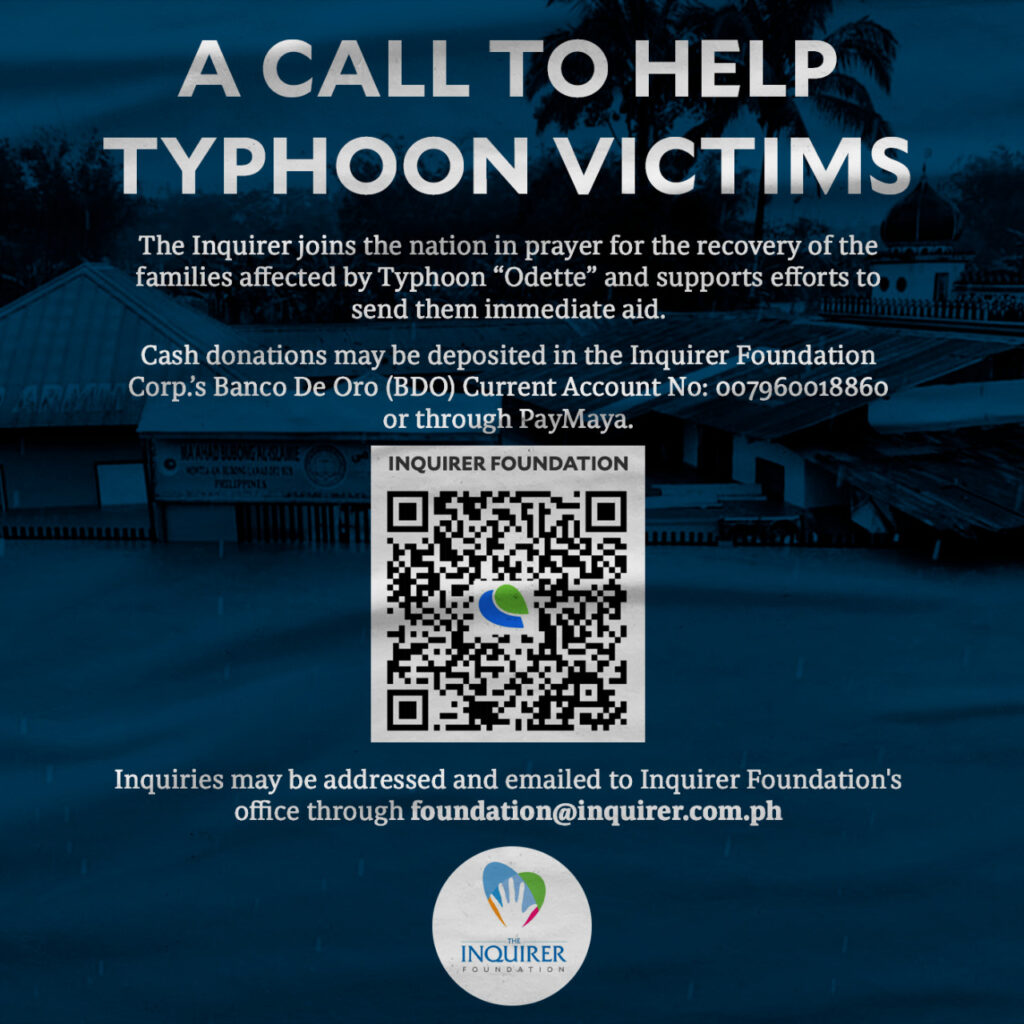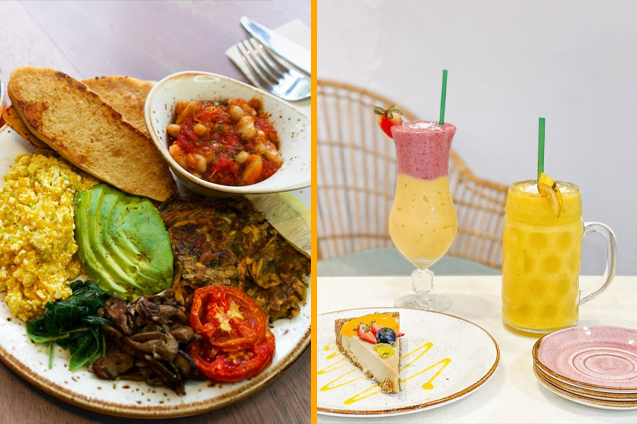Our lives host routines we accept as true.
A few things we trust in: Eating three times a day, spending four years in college to work for decades, and chucking ourselves into offices that purportedly contain a “productive life.” Or, perhaps these are things a few of us refuse to trust.
There is something about surf towns that has one leaning towards the latter distrust. At least in my experience, the routines and cycles of daily life slowly dissolve in these idyllic spaces—until I return to the city.
Ben Plummer, owner of Shaka with outlets currently open in Siargao, Bohol, Moalboal in Cebu, Bonifacio Global City, and most recently at SM Mall of Asia, started writing his own story, calmly questioning that perceived cycle, when he turned 18.
Born in Melbourne, Australia and raised in Byron Bay in New South Wales, Plummer realized his nomadic yearnings early on and was on a plane to Rio de Janeiro just two months after graduating high school. He would have left sooner “[but] my parents tempted me to stay [in school by] gifting a flight to anywhere in the world if I graduated.”
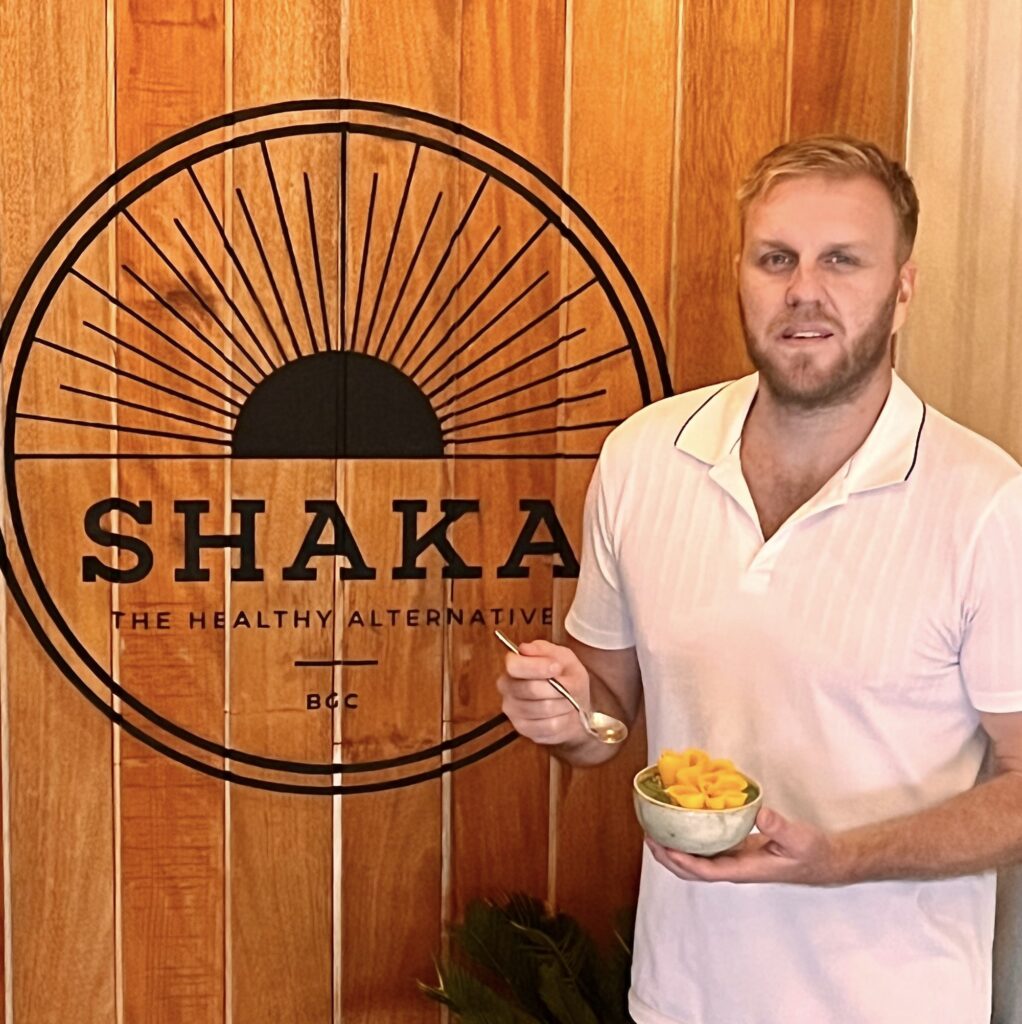
After working as a construction and maintenance manager in the mining industry, traveling throughout Western Australia and Papua New Guinea for 12 years, the nomadic itch grew anew. And in 2010, Plummer began a yearlong sabbatical traveling the Americas overland from Canada to Argentina.
“I had a well paid job but I didn’t love it, so I was happy to spend as much time away from work that I could afford,” he says. “By 28 I had backpacked through 50 countries, giving me a greater understanding about people, food, trends, resilience, patience, empathy, and happiness.”
These journeys shaped his attitudes towards life and business.
And his business was born on Siargao Island
“On the way back to Australia, I decided to drop by the Philippines in search of the perfect wave of Cloud 9 prior to recommencing work,” Plummer continues, “[and] I fell in love with the laid-back charm and beauty of Siargao Island.”
Returning the following year, Plummer met his now wife Lyn and started Shaka Cafe with Geoffrey White, a friend he made in Siargao in 2012, who remains a partner at the company. Of course, Plummer quit his job, too.
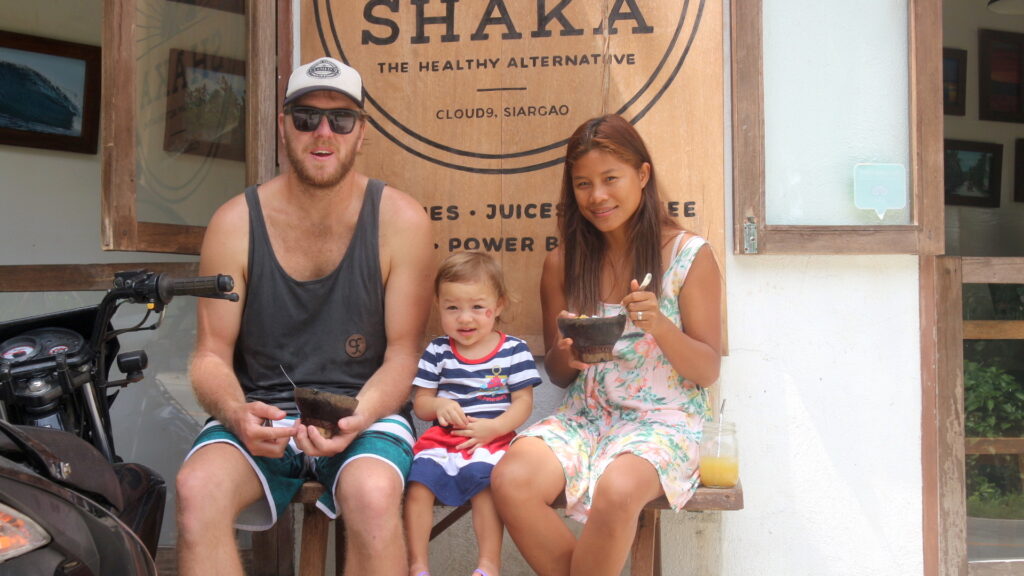
Originally suggested by White, “Shaka” seemed to fit the surf vibe of Siargao, it being the Hawaiian surf folklore hand gesture signaling friendly intent.
“Hang loose,” you’d say.
But it wasn’t initially a place to get post-surf grub.
“Originally, Shaka was set up as a photo studio,” Plummer says. “Geoffrey and I were avid surf photographers and wanted a location close to the surf breaks where we could sell ourselves for hire or prints for purchase.”
With notes from experiences in Brazil where Ben Plummer observed the functionality of a small kitchen, a blender and a freezer, a 20-square-meter garage with a six-square-meter kitchen attached, and a view of the open sea, the Shaka smoothie bowls were born.
But over time, the nag for a decent cup of coffee prompted them to ship an espresso machine onto the island all the way from Australia. With notes from experiences in Brazil where Plummer observed the functionality of a small kitchen, a blender and a freezer, a 20-square-meter garage with a six-square-meter kitchen attached, and a view of the open sea, the Shaka smoothie bowls were born.
From the get-go, Plummer and his team were determined that the philosophy of a healthy lifestyle would be embedded in the business. “Our smoothie bowls were crafted to give long-lasting energy for hours of daily surfing,” Plummer says.
Expanding the Shaka business
Upon opening the second branch in Alona Beach, Bohol in 2017, just two years after the first branch, Plummer faced rent prices that were 10 times higher than what he was accustomed to in Siargao.
“We had to get back to the drawing book to ensure we could cover the expenses,” Plummer says. Remaining true to their connection with the environment and commitment to deliver a business model promoting a healthy lifestyle, Plummer recalls that the team decided to create a fully vegan, plant-based menu to complement their non-dairy smoothie bowls.
While the Siargao outlet sticks to bowls, coffee, juices, loose leaf teas, and smoothies that had 100 customers lining up outside the door every day, new outposts, like the one in Burgos Circle, Bonifacio Global City, have menus stacked with all-day breakfasts, vegan burgers, adlai risotto, pad thai with tamarind-soaked jackfruit, and cocktails, too.
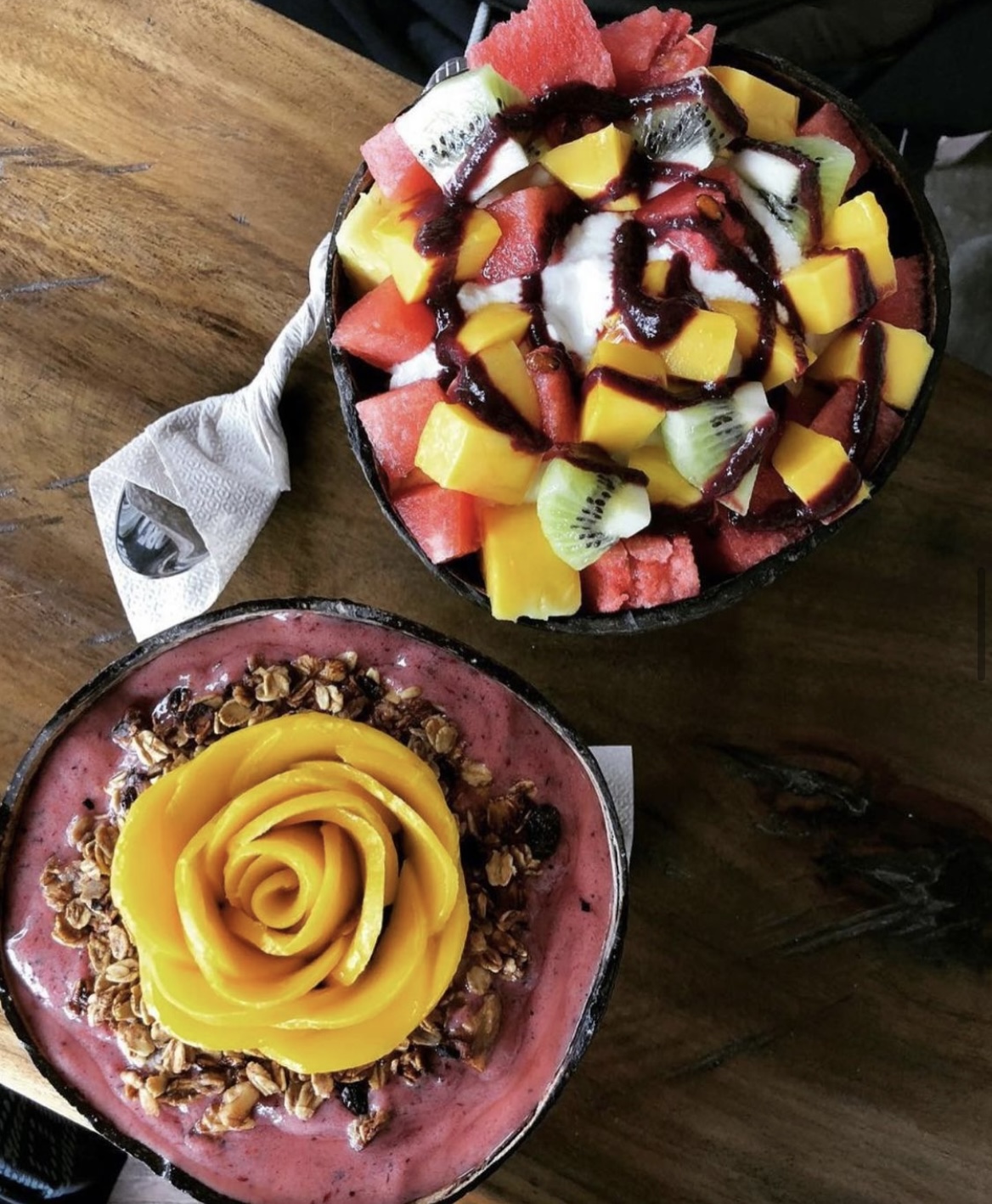
“Daily, we had requests to franchise mostly abroad, being that the international market was our strong demographic,” Plummer says. “However, we never really felt like we were in the right position to handle international operations.”
Nonetheless, the team had its eye on expanding with one mall operator while considering multiple branches in Cebu City and Metro Manila. Boracay locations are also being negotiated while discussions continue on locations in three other countries.
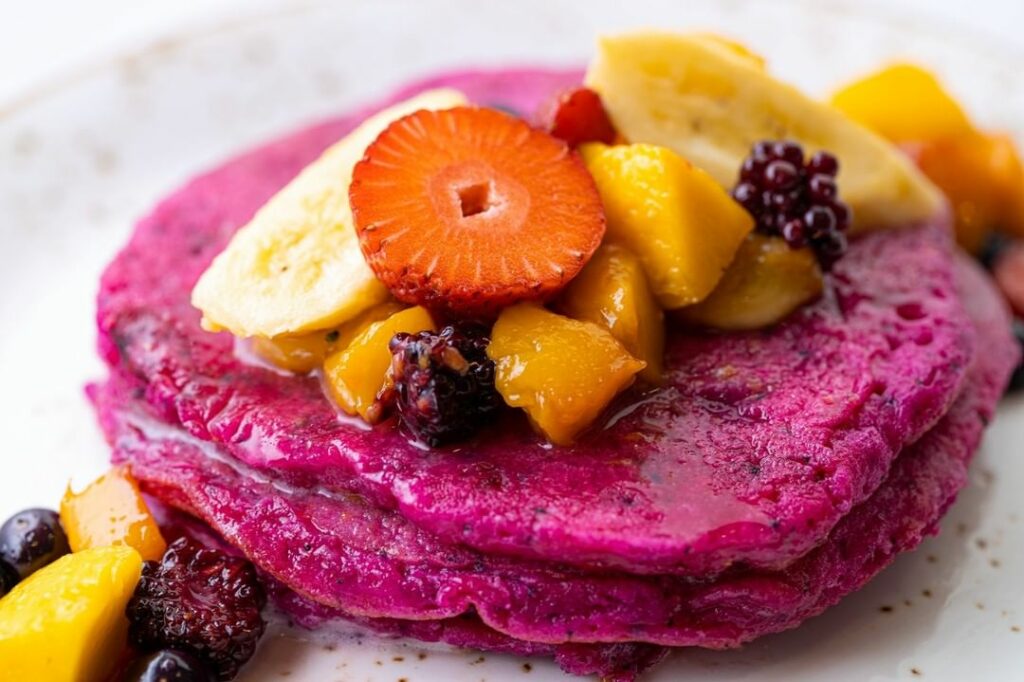
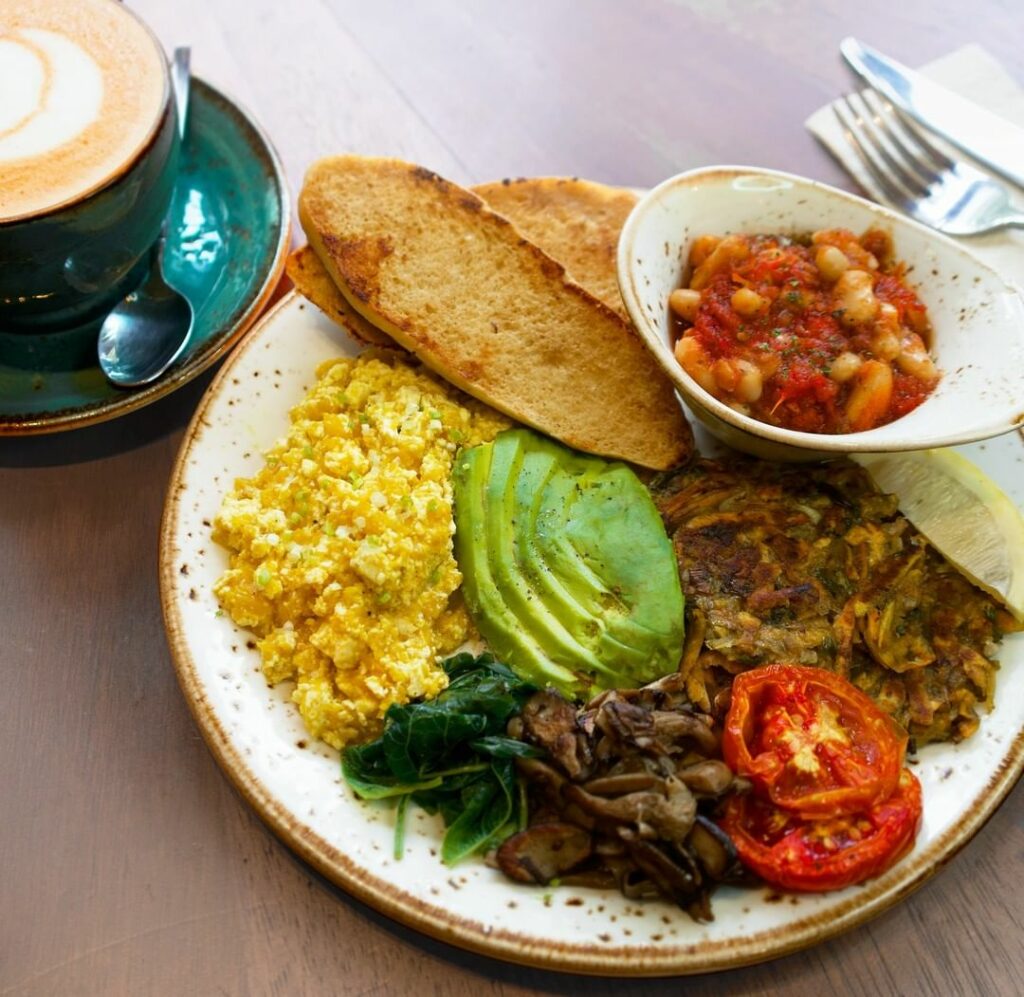
Difficulties turned successes and the COVID-19 pandemic
Between launching in Bohol, Moalboal, and Manila, Shaka Cafe also established an outpost in Lio Beach, El Nido. But unlike the success of the other branches, the team was forced to draw customers out of El Nido town on a 25-minute journey to visit the outlet.
“We were full of arrogance and very bullish of the brand being an easy success like our first two,” admits Plummer. “It was the mistake we had to make.”
“All our locations were 100 percent tourism-dependent. Our sales dropped by 99 percent overnight [due to COVID-19]. [It] took nearly 12 months before we started seeing things turn for the better.”
But while the team had to close down El Nido partly due to COVID-19 (with an intention to reopen once tourism returns), the revenue of the four branches were greatly impacted. “All our locations were 100 percent tourism-dependent. Our sales dropped by 99 percent overnight. [It] took nearly 12 months before we started seeing things turn for the better.”
Plummer realized that they would need to expand the business into the capital. “[As] much as we loved the island life, we couldn’t remain dependent on tourism as a sustainable model,” Plummer reflects.
“There was no better time to enter a densely populated market that was increasingly aware and on the lookout for healthier food.” With investors backing the shared vision despite the pandemic still raging on, these unfortunate events were turned into an opportunity to branch out into a larger market.
Strategies that lead to positive change
When asked what led him to a plant-based diet, Plummer cites his parents who ran cafes, bakeries, and restaurants as he was growing up. “My parents were considered somewhat ‘hippy’ so growing up my plates were always colorful with locally sourced fresh produce.” The plant-based diet was simply what he knew. “It was never so much a realization but more an expectation.”
A commitment to eating plant-based may extend beyond health benefits and well into an awareness of the problems of the meat industry and food waste. Says Plummer, it’s about “living life without blinkers on.”

This message has been met with a customer that is more willing to listen and who is already growing in consciousness. Although the Philippines is often thought to be a meat-eating society, Plummer noticed a growing popularity of cleaner and healthier foods in their tourist destinations.
In a pandemic that has elevated the importance of health, Shaka Cafe has found a level of social awareness ripe for market entry. “Through early stages of the pandemic,” says Plummer, “there was a social shift, somewhat of an awakening or maybe it was a fear of early demise due to unhealthy lifestyle combined with COVID-19 that a greater awareness to a better standard of diet became appreciated.”
With a message woven into its brand, this is how Shaka Cafe guides and effects positive change:
Build memorable experiences
Plummer says that they used basic strategic marketing, subtle customer education, and general social media awareness to build interest, but that the customer journey from brand discovery to dining in the establishment and into the service guests experience are what keeps them returning.
“Too many like-minded concepts before us haven’t survived because they apply to only one facet, namely serving vegan food but dine-in needs to be valued as a positively memorable experience.”
“Too many like-minded concepts before us haven’t survived because they apply to only one facet, namely serving vegan food but dine-in needs to be valued as a positively memorable experience.”
Take internal communications off social media
“Positive communication is the backbone of the company,” Plummer says. He appreciates mistakes as they are unavoidable. “We are humans, not robots… as long as we take learnings from these mistakes and are constantly on the lookout for proactive solutions to prevent iteration.” To aid this, Shafe Cafe invested in Basecamp, an inter-management digital system that staff can access through their mobile phones.
Feed on feedback
Feedback is key to maintaining customers. The team uses Google, TripAdvisor, and social media for indications of what’s happening in their outlets. “By observing customers’ posts, we can see quality and satisfaction and we actively encourage online reviews.”
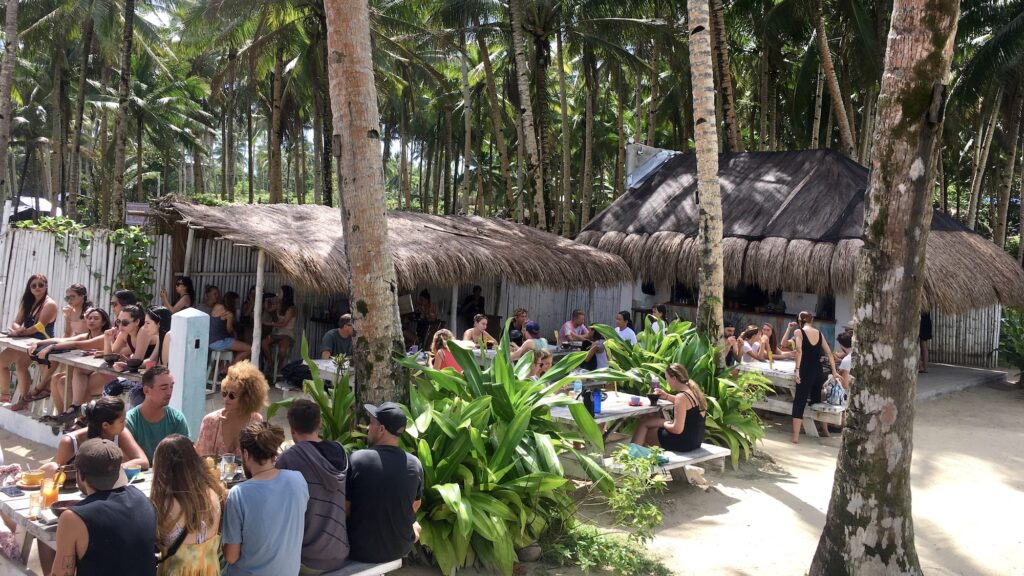
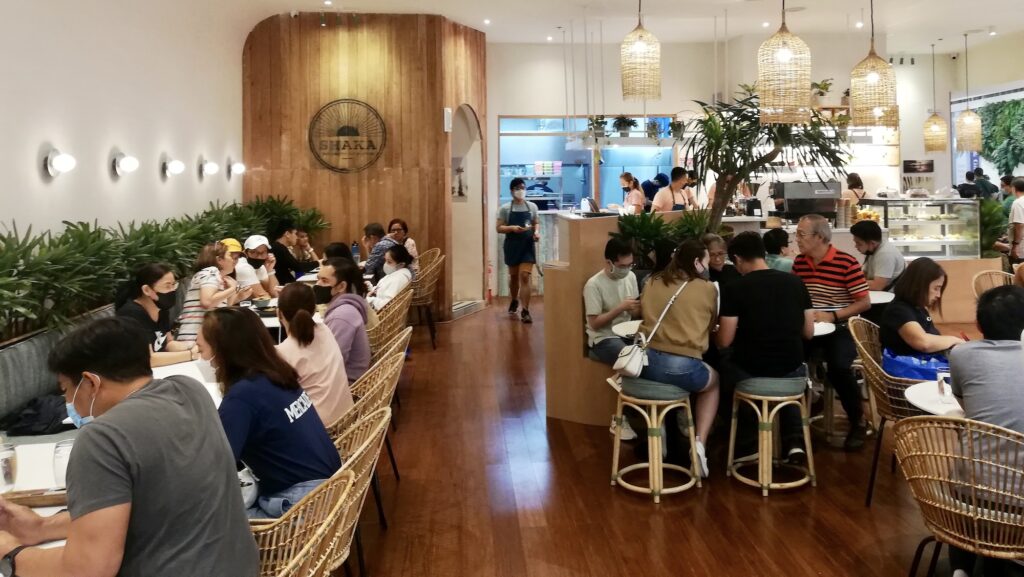
Belief is built on authenticity
“We have an environmental policy in which all our takeaway products [must] have a breakdown period within 90 days, leaving no chemical trace,” shares Plummer. Additionally, all dine-in straws are made from rice meal, the takeout boxes from bagasse and the cups from plants.
No disposable or single-use plastic is allowed within the kitchens and fresh produce suppliers are required to deliver in reusable crates rather than plastic bags.
So which routines and cycles will you begin to question?
While burnt-out city dwellers have flocked to the reprieve of island living, the reality of how vulnerable our islands are to climate change hit home as Visayas and Mindanao were ravaged by Typhoon Odette. Plummer says some Shaka locations have sustained “a bit of damage but nothing that can be repaired.” Once again, Shaka and other businesses are back to rebuilding.
“Positive communication is the backbone of the company,” Ben Plummer says. He appreciates mistakes as they are unavoidable. “We are humans, not robots… as long as we take learnings from these mistakes and are constantly on the lookout for proactive solutions to prevent iteration.”
As business owners operating in conditions that will see only environmentally aware and nimble businesses thrive in a rapidly changing, overheating, and growingly volatile planet, Plummer points to a real desire to be part of the solution. “Educate yourself, ask questions, demand better. No excuses.”
Reflecting on the adage “ignorance is bliss,” Plummer says, “It’s not. Ignorance is incredibly destructive.”
A real point of departure is awareness as it may trigger a change in mindset. Perhaps positive change begins with education, and perhaps food businesses can catalyze this change.
